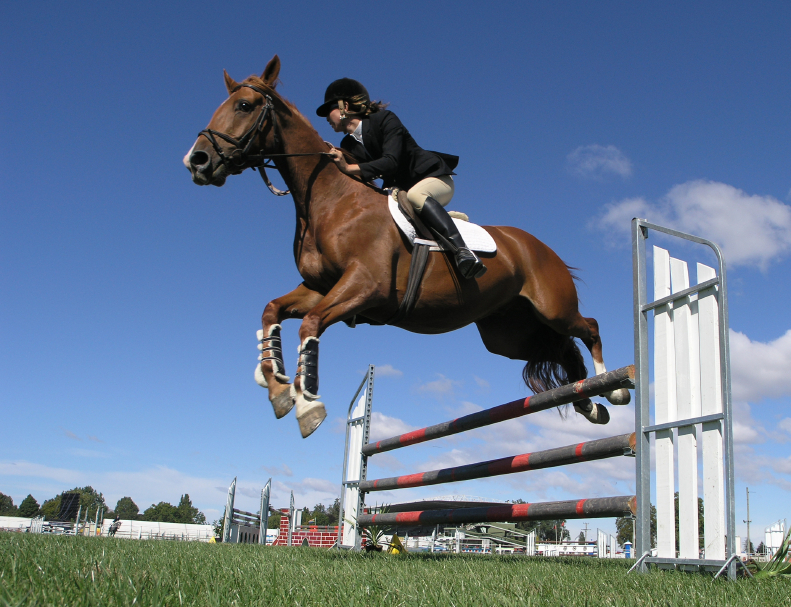Editor’s note: This article is a guest post from the CPA, Stephen L. Nelson, I interviewed for an earlier blog post this month.
So, if you happened to check out the last blog post about when and how one can write off the expenses of a horse on your tax return, you probably weren’t surprised to learn that while you can sometimes write off the costs of owning a horse—and save tons of taxes–hobby expenses usually can’t be written off.
Given these twin realities, you probably won’t be surprised to hear that over the years horse owners have repeatedly tried to take deductions, regularly been challenged by the Internal Revenue Service, and frequently ending up losing the argument in court.
Background about Horse-related Tax Savings Gambits
For example, at least one attorney has tried to write off the expenses for playing polo including all the costs of owning and caring for his polo ponies.
More than a few physicians or their families have tried to write off the costs of breeding and raising horses.
And countless numbers of folk have tried to call a small stable a “business” so as to take as deductions the costs of owning one or more horses.
As a general rule, in the majority of these cases, taxpayers lose the argument.
And summing up the situation simply: If horses or a stable produces only tax deductions or business losses, the activity can’t save taxes because you don’t have a business or investment. You only have a hobby you’d like for tax reasons to call a business or a hobby.
Tracy Topping’s Terrific Tax Planning Tactic
Given the above realities, the United States Tax Court case of Tracy Topping surprised pretty much everyone.
In a nutshell, Ms. Topping devised a business plan to leverage her equestrian skills, horse experience and a 16-year-old horse to design barns and homes. Her approach? She combined both the activity of owning a horse with the activity of designing barns and houses.
Per her business plan, the combination created synergy. Yes, on paper, a narrow analysis might make the horse ownership look only like a hobby. And an expensive one, as you might guess.
But her argument was the combination made good business sense. Owning a horse and then regularly participating in equestrian events and horse shows worked as a powerful platform for marketing her design business.
The judge agreed.
The tax court, for example, made this comment about her operation:
Petitioner’s business methodology consists of entering in and attending horse shows, and making contacts with prospective clients at the shows. Potential clients develop from horse show contacts, and then petitioner and Ms. Martin meet with the potential client. Early on in her business, petitioner tried to develop clients through her longtime experience playing golf. When golf failed to produce any clients, she dropped her golf club membership.
Drawing Lessons from the Court Case
You should read the court case and discuss it with your tax advisor if you want to use the logic of the Topping versus the IRS Commissioner court case. But let me point out a handful of factors you may want to pay particular attention to.
1. Ms. Topping had a formal business plan that rationally explained why combining her equestrian activities and her design activities made sense. (This was key.)
2. The two activities occurred inside the same business entity—in Ms. Topping’s enterprise, for example, both activities occurred inside a limited liability company she had formed in 1999. (This was probably essential to the gambit working.)
3. In combination, the horse activity and the design activity produced a profit most years. For example, while the “horse” business might lose $50,000 in a given year if the “design” business made $200,000 for the same year, the consolidated operation would then show a net profit of $150,000.
4. Ms. Topping and her advisors presented a compelling and believable business argument for why they were using horse shows and other events as their marketing approach. (That the judge believed Ms. Topping argument indicates he thought her argument was credible and good.)
Final Caution
A closing caution if you’re a horse owner interested in applying the lessons of the Topping tax court case: You do need to be very careful here. In many cases, you would want outside professional help from a local CPA or tax attorney in order to get the gambit to work right.
About the Guest Post Author: Stephen L. Nelson is a CPA in Redmond WA. The author of QuickBooks for Dummies, he holds a Master of Science in Taxation degree from Golden Gate University, a Master in Business Administration degree from University of Washington, and a Bachelor of Science in accounting from Central Washington University.


Pingback: Five Best Small Business Tax Loopholes | Evergreen Small Business